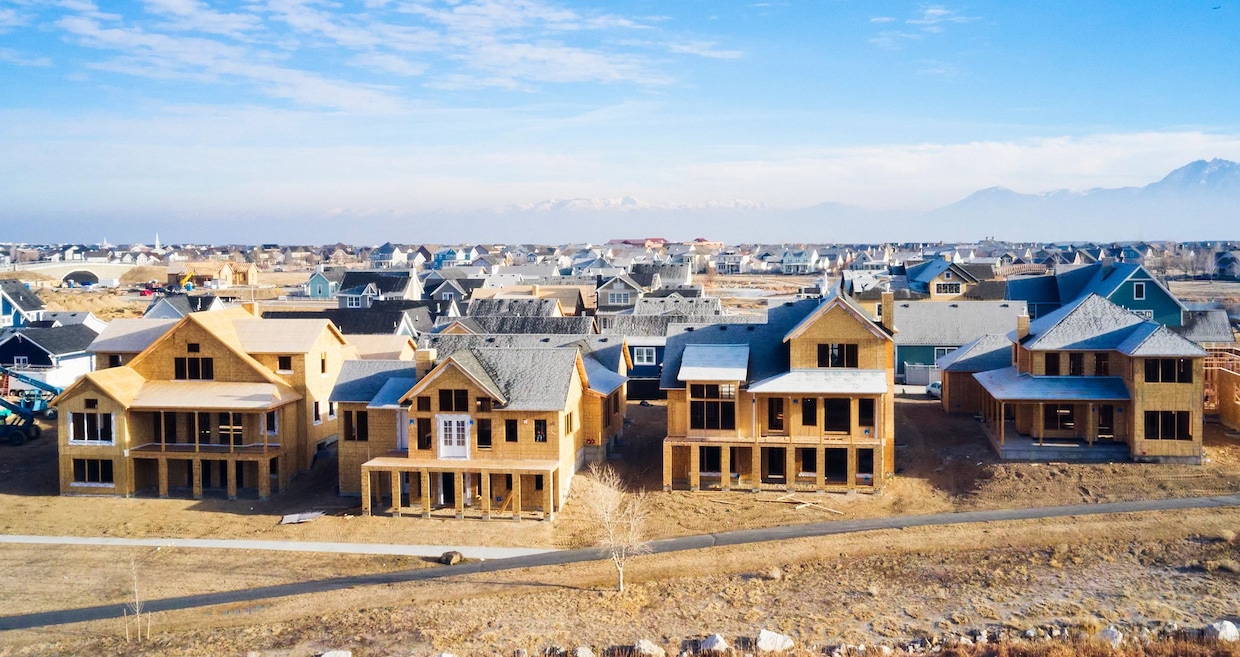The share of homebuilders nationally that say they are trimming prices of new homes hit a post-pandemic record high this month, according to a monthly survey by the National Association of Home Builders.
November results found 41% of homebuilders discounted homes this month at an average of 6%. That share represents a 3% uptick from last month and a 12% rise since March.
The National Association of Home Builders/Wells Fargo Housing Market Index tracks builder confidence in future and current sales on a scale of one to 100, with anything over 50 reading positive. November’s confidence remained staunchly negative at 38. The index has been negative since May 2024.
The discounts and disappointing outlook result from a weak job market, the recently ended government shutdown and ongoing affordability challenges, said the trade association.
“While lower mortgage rates are a positive development for affordability conditions, many buyers remain hesitant because of the recent record-long government shutdown and concerns over job security and inflation,” NAHB Chairman Buddy Hughes said in a statement. “More builders are using incentives to get deals closed, including lowering prices, but many potential buyers still remain on the fence.”
The number of builders offering sales incentives, such as mortgage rate buydowns, free upgrades or other alluring perks aimed at pulling buyers off the sidelines, remained at 65% this month. It’s the same share since September, but a 6% increase since February.
Builder says remodeling thrives while new builds soften
In the Houston and Galveston, Texas, area, custom homebuilder Zach Gavos of Keepsake Custom Homes told Homes.com that demand has been so soft for new construction, he has pivoted heavily into remodeling. He views it as a busier part of the industry that’s propped up by what’s referred to as the “lock-in effect,” when homebuyers who cashed in on pandemic-low mortgage rates choose not to move.
“I believe that those people with a 3% to 4% interest rate, no matter whatever life stage they’re in, go, ‘All right, we’re never moving. … Let’s do the kitchen, let’s do the bathrooms,’” said Gavos in an interview.
He pointed to a current project where homeowners chose to build a 1,000-square-foot addition to their home instead of searching for a slightly larger property. “Five years ago, [it was] a lot of new construction and a little bit of remodeling. Now it’s the complete opposite,” Gavos said.
A TD Bank survey from October found 67% of homeowners have at least $100,000 in home equity and about the same plan to renovate in the next two years. The NAHB remodelers' survey found a confidence level of 60 for the third quarter compared to the builders' 38 reading this month.
Still, home improvement retail giant The Home Depot said Tuesday that economic worries are causing customers to spend less on sprucing up their properties.
"We believe that consumer uncertainty and continued pressure in housing are disproportionately impacting home improvement demand," CEO Ted Decker said in a statement.
Better new home market in 2026?
At a National Association of Realtors conference last week, economist Lawrence Yun gave a modest prediction for new home sales.
Yun reported that new home sales declined by 2% throughout 2025. However, he said overall sales might increase by 5% next year, while existing home sales could rise by 14%.
The executive chairman of one of the country’s largest homebuilders, D.R. Horton, has predicted an increase in sales incentives, which can affect the average price of a home while signaling continued challenges to buyers.
"New-home demand is still being impacted by ongoing affordability constraints and cautious consumer sentiment, and we expect our sales incentives to remain elevated in fiscal 2026, the extent to which will depend on market conditions throughout the year," David Auld said on the firm’s October earnings call.

